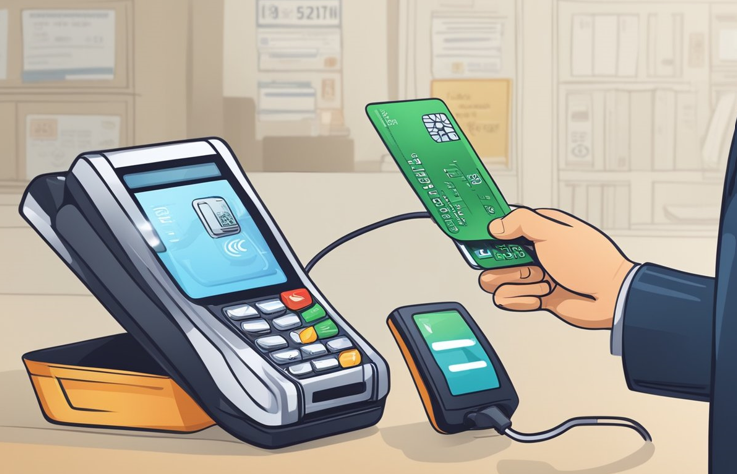Merchant credit card processors are an essential tool for businesses of all sizes that accept credit card payments. These processors provide a way for merchants to securely process credit card transactions, and they offer a variety of features and benefits that can help businesses grow and succeed.
One of the primary benefits of using a merchant credit card processor is the ability to accept a wide range of credit and debit cards. This can help businesses attract more customers and increase sales, as customers are more likely to make a purchase if they can pay with their preferred payment method. Additionally, merchant credit card processors typically offer fast and secure payment processing, which can help businesses streamline their operations and reduce the risk of fraud or chargebacks.
Another key advantage of using a merchant credit card processor is the ability to access valuable data and insights about customer behavior and purchasing patterns. Many processors offer advanced analytics and reporting tools that can help businesses make informed decisions about inventory management, marketing strategies, and more. Overall, a merchant credit card processor can be a powerful tool for businesses looking to improve their bottom line and provide a better customer experience.
Understanding Merchant Credit Card Processing
The Role of Merchant Credit Card Processors
Merchant credit card processors are companies that provide the technology and infrastructure necessary for businesses to accept credit and debit card payments from their customers. These companies act as intermediaries between the merchant, the customer, and the financial institutions that issue the cards.
The main role of a merchant credit card processor is to facilitate the secure and efficient transfer of funds between the various parties involved in a credit card transaction. They provide the hardware, software, and network connections necessary for merchants to process credit and debit card payments.
Types of Merchant Credit Card Processing
There are two main types of merchant credit card processing: traditional and online. Traditional merchant credit card processing involves the use of physical point-of-sale (POS) terminals, while online processing involves the use of e-commerce platforms and payment gateways.
Traditional merchant credit card processing is typically used by brick-and-mortar businesses, while online processing is used by businesses that operate primarily online. Both methods have their own advantages and disadvantages, and businesses must choose the one that best suits their needs.
How Credit Card Processing Works?
Credit card processing involves several steps, including authorization, batching, and settlement. When a customer makes a purchase using a credit or debit card, the merchant sends the transaction information to the credit card processor, who then sends the information to the customer’s bank for authorization.
Once the transaction is authorized, the merchant batches the transactions and sends them to the credit card processor for settlement. The credit card processor then transfers the funds from the customer’s bank to the merchant’s bank account.
The Importance of Payment Security
Payment security is a critical component of merchant credit card processing. Merchants must take steps to ensure that their customers’ sensitive payment information is protected from fraud and theft.
Merchant credit card processors use a variety of security measures, including encryption, tokenization, and fraud detection systems, to protect their customers’ payment information. Merchants must also comply with industry standards, such as the Payment Card Industry Data Security Standard (PCI DSS), to ensure that they are following best practices for payment security.
Choosing the Right Merchant Credit Card Processor
When it comes to choosing a merchant credit card processor, there are several factors to consider. Here are some key points to keep in mind:
Evaluating Processor Fees and Costs
One of the most important considerations when choosing a merchant credit card processor is the fees and costs associated with their services. Merchants should evaluate the following fees and costs:
- Transaction fees: This is the fee charged for each transaction processed through the merchant’s account.
- Monthly fees: This is the fee charged for maintaining the merchant’s account.
- Chargeback fees: This is the fee charged when a customer disputes a charge and the merchant has to refund the transaction.
- Setup fees: This is the fee charged for setting up the merchant’s account.
Merchants should compare fees and costs across different processors to find the best deal.
Assessing Contract Terms and Customer Support
Merchants should also consider the contract terms and customer support offered by different processors. Merchants should evaluate the following factors:
- Length of contract: Merchants should look for processors that offer flexible contract terms.
- Early termination fees: Merchants should be aware of any fees charged if they terminate the contract early.
- Customer support: Merchants should look for processors that offer 24/7 customer support.
Comparing Payment Gateway Integration
Another important factor to consider is payment gateway integration. Merchants should evaluate the following factors:
- Payment gateway options: Merchants should look for processors that offer a variety of payment gateway options.
- Ease of integration: Merchants should look for processors that offer easy integration with their existing systems.
- Security: Merchants should look for processors that offer secure payment gateway options.
Considering Merchant Account Options
Finally, merchants should consider the merchant account options offered by different processors. Merchants should evaluate the following factors:
- Types of merchant accounts: Merchants should look for processors that offer a variety of merchant account options.
- Approval process: Merchants should be aware of the approval process for opening a merchant account.
- Payment processing options: Merchants should look for processors that offer a variety of payment processing options.
Overall, merchants should carefully evaluate different merchant credit card processors to find the best fit for their business needs.
